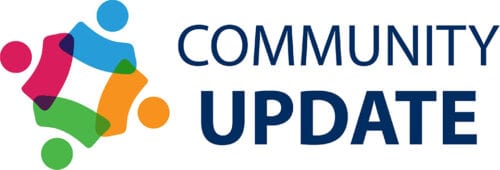Healing Notes
Music in all its forms has the power to heal and uplift, for the living of these days.

As the number of cases and deaths continue to rise during this “second wave” of the novel coronavirus, many people are remaining vigilant in their attempts to alleviate the mental and physical suffering caused by the effects of the pandemic.
Many have discovered, or rediscovered, the joys of going outside for a brisk run or walk. Many have taken up fishing and hunting as a hobby, for the first time.
Many have learned that they have a green thumb and the serenity one can attain while working in a garden. Also, many have found out that there was a Julia Child or Emeril Lagasse simmering just under the surface looking for the perfect opportunity to uncork their latent cooking talents.
Another solution to help one overcome feelings of despair during these days and times, according to many experts, is music.
What do songs like I’m Walking on Sunshine by Katrina and the Waves, Back to Life by Soul II Soul, The Four Seasons by Vivaldi, and The Sun by Ghostface Killah have in common?
Although they’re designated in different musical genres, these songs, as well as countless others, have the ability to uplift their listeners’ spirit and mental health during challenging times of anxiety and stress—like living through a global pandemic.

According to the article “Music Can Be a Great Mood Booster,” by Sarah Elizabeth Adler, in aarp.org, she writes about a report from the Global Council on Brain Health titled “Music on Our Minds.” The research showed “music’s positive effect on emotional well-being, including improving mood, decreasing anxiety, and managing stress.”
Like Smokey Robinson and the Miracles, local experts were quick to “second that emotion.”
“Music is something that can promote mindfulness and be a self-soothing skill for a person and reduce anxiety and stress,” says Robert Whitekettle, LCSW and LCADC with Inspira Health.
Absorbing the healing powers of music can be a dynamic or static activity.
“Music can be experienced in a multitude of ways—actively playing music, singing along with music, ‘passive’ listening, and/or moving to music,” says Libby Leidolf, addictions specialist with Inspira Health. “Any of these can be beneficial for mental health.”
The pandemic has definitely taken its toll on the mental health of U.S. citizens. A survey study recently published on jamanetwork.com titled “Prevalence of Depression Symptoms in US Adults Before and During the Covid-19 Pandemic” discovered “that prevalence of depression symptoms was more than 3-fold higher during COVID-19 compared with the most recent population-based estimates of mental health in the US.”
Unsurprisingly, music therapists have long been aware that music can be an elixir to help mitigate symptoms of depression, used as a tool for communication, and as an harmonic platform to connect with others, plus more.
“Music allows for personal expression of emotions, identification with the emotions of others (which can also help relieve isolation and create an experience of community), a means of channeling
and focusing energy that might otherwise
be experienced as anxiety,” says Leidolf, who received a master’s in music therapy.
“Listening to familiar songs/music can recreate an emotional state that was previously experienced in conjunction with that song,” she continues. “This can help someone to re-experience joy from a prior experience as well as helping someone to experience/process grief regarding the loss of prior opportunities or loved ones.”
While some may not believe that music has the power to lift people up out of the doldrums, there is proof to corroborate that notion.
“A study done in Italy was published by The Arts in Psychotherapy journal in July 2020,” Leidolf says. “This study explored the impact of music listening on a small group of doctors and nurses who were caring for COVID patients. Giving consideration to various musical factors such as rhythm, melody, harmony, timbre, pitch, etc., music therapists created playlists designed to reduce stress and increase energy. The study showed a significant reduction in tiredness, sadness, fear and worry after subjects listened to these playlists.”
“There is an evidenced-based intervention called dialectical behavioral therapy (DBT), which has been researched for decades,” says Whitekettle, who planned on being a journalist, but found his calling in the field of human services. “It has been shown that skills developed from this intervention can help promote emotional, mental, and even physical wellness. These skills include mindfulness and distress tolerance, both which can include music as an intervention to self-soothe and relax.”
One form of music that can help to “self-soothe and relax”, during “normal” times, and especially during the pandemic, is sound bowl healing.
According to mandalas.life the use of singing bowls as a healing agent has been in existence for more than 2,500 years. “The sides and rims of singing bowls vibrate to produce sound and vibration which is used for balancing the physical, mental-emotional and spiritual energy in our body,” the site explains.
The positive impact the music emanating from singing bowls has on people is palpable.
“Sound healing will restore balance and release or reduce stress,” says Lucia DiSimione, master sound healer and owner of The Nurtured Soul. “One of the guarantees that I can give when someone comes to me either in a group setting or an individual setting for sound healing is relaxation.”
When it comes to selecting what kind of music people should listen to when they’re feeling down in the dumps, especially during the pandemic, two out of two specialists agree—choose a song or songs that make you feel good.
“…[P]ersonal preference and prior experience with music is a strong determinant for what music a person finds comforting and uplifting,” says Leidolf.
“I suggest that a person listen to music that generally uplifts them or inspires them …,” Whitekettle adds. “In fact, I would take it a step further and suggest that they actually learn an instrument or get a drum and bang on it!”
Leidolf shares one final thought about how people might be able to cope during these inauspicious times.
“We are experiencing a collective trauma as a nation, as a world right now,” she says.
“We need to find as many ways as we can to connect, create, and play. Music, art, nature, etc., can serve as soothing and grounding forces when the rest of the world is full of uncertainty and chaos.”
For more information on how music can help you cope during the novel coronavirus era visit inspirahealthnetwork.org










